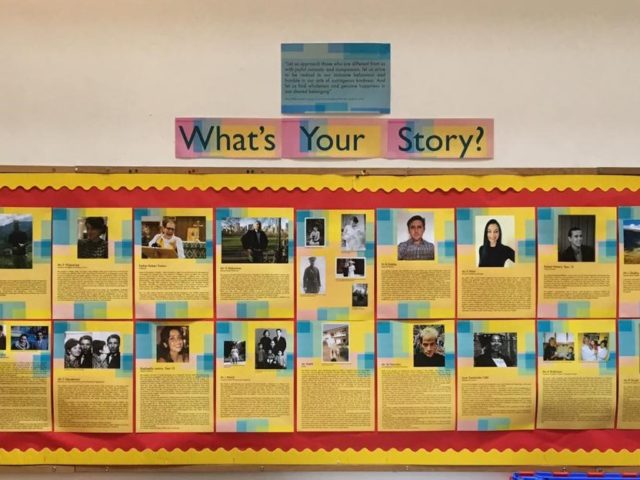I’m conscious that, by the time I write my next blog, offer letters for 11+ will be winging their way from schools across north London, and most minds will be turning to choices. Open mornings will allow parents and carers to refresh their understanding of the inner workings of the schools they had visited so many months before, and schools will be shifting from big picture vision pitch to granular detail. At the same time, by the same post, a second tranche of letters will be going out bringing post-interview bad news. And, all the while, families are discussing the choices – endless chatter face-to-face, endless chatter online, and the best one can say about the process is that it makes a break from Brexit!
Before the letters hit the doormat and inbox, what’s left to be said? Of all the things I’d like to say, and there’s so much (after all, these are your children), it is this: academically selective schools don’t only value test performance, and don’t want families to live out their experience of 7+ and 11+ in the years that follow.
In much the same way that Ofsted has (only) recently reflected the growing realisation that the quality of an education should be judged in, and through, the child’s day-today experience (are they happy? Do they behave kindly to each other? Is there enough breadth on offer in the curriculum?), rather than principally or exclusively in that child’s exam results or progress measures, so academically selective schools (like Highgate) want to get the messaging right about the tests they set. We use them because there needs to be some measure to ensure pupils have chosen the right fast-paced curriculum, and something common to what every pupil in Year 6 will have been learning. We’d like to think that a good test will assist teachers rather than hinder them, but we know that the laws of supply and demand mean that focused tests can lead to pupils reaching a higher (possibly a deceptively high) standard than most senior schools actually need, in order to differentiate between would-be pupils. We all wait to see if there’s a reliable, an equitable, test which means exam familiarity or slavish preparation are things of the past, but in the interim, we live with the consequences.
We don’t use tests after Year 6 to keep sifting our pupils into quartiles, or to check their progress repeatedly. A (brilliant) Highgate Governor once asked me how pupils knew that they had made appropriate progress lesson to lesson, and I realised that I don’t want them to be thinking like that. I want pupils to feel confident, of course, and to be able to ask questions to advance their learning or to fill a gap or untie a knot, but I want them to be learning because they’re interested, because they’re motivated, because they feel they should be learning, because they’re curious, because they have pride, because they want to please their families, because they feel that learning is important. It’s a state of mind, a way of living. And it doesn’t need constant checking against standards or expectations. ‘Big’ checking, block testing, year group assessing – all lead to comparisons, lead to parents and carers wondering if their children, at any one point, are doing well enough, are meeting their expectations; while the child feels they’re on a parental or societal travellator towards a preferred destination, and frame their value using other people’s currency.
Once a child has joined a school by means of a selective test, they need to believe in themselves and to be believed in. There are no academic imposters; some may take longer than others to acclimatise and others may live off the fat of what they’ve learnt elsewhere for a while but what’s needed is the approach to learning – the thing that will turn pre-11 curiosity and enthusiasm into adolescent intrigue, self-discipline and passion. At Highgate we happen to call the pedagogy we use to keep exam obsession at bay I-BAC – independence through buzz (in the classroom), aspiration and collaboration. It’s not only a slightly sceptical eyebrow raise at EBacc but a statement of intent that the journey, the way of travelling, is as important as the destination. Or, put differently, it’s what remains of all that childhood learning and engagement after the exams are long since done.
Year 11s were treated to a talk by a recent leaver, The Times political journalist, Henry Zeffman, this last week. All agreed that he has a career ahead of him, were he to need one, as a compelling, entertaining lecturer (Year 11, in the lesson before lunch, is perhaps a hard gig). And all mused on his good fortune that he was able to do something every day which he simply loves, despite the leaky portacabin which passes as his Westminster office and the long nights and umbilical connection to phone and news feeds. We who listened sensed that he had lived his school life in much the same way, by simply doing what he loved, with passion, and never going through the motions. Perhaps except in art, but then even Henry’s not perfect.
Perhaps that’s it: not perfect, but with passion. If only there were a test for that.

